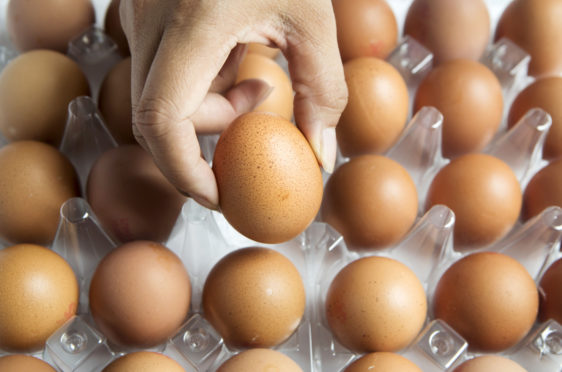Scotland’s egg producers are becoming increasingly frustrated over the prospect of finding themselves in a totally unprotected post-Brexit market with the risk that a major part of UK sales will be filled by cheap imports from the USA, South America and Ukraine.
“The UK Government has a love affair with cheap food and would sell its soul to achieve it,” said James Baxter, Borders-based chairman of the British Free Range Egg Producers Association.
“As an industry, we’ve invested millions over the years to produce eggs under the most stringent health and welfare standards, but the government seems willing to ‘throw us under the bus’ in order to make sure UK consumers have cheap food after Brexit.”
Mr Baxter was responding to the findings of a new study carried out for the EU egg trade association (EUWEP) which included the warning that Europe would be exposed to “large volumes” of imported eggs if, or when, the EU gives up on egg import levies.
At the same time, the UK Government has already made it clear there would be no tariffs on eggs or egg products entering the UK after a no-deal Brexit.
“It’s unacceptable that an industry which has no direct government support is now faced with being exposed to cheap imports produced to inferior standards of production, welfare and care of the environment,” said Mr Baxter.
“This is very bad news for the Scottish egg sector, especially as we have higher regulatory costs than the rest of the world.”
According to the EUWEP study, meeting the EU’s regulatory requirements adds 16% to current production costs in Europe in comparison to eggs produced in the USA, South America and Ukraine. UK costs are at least as high, if not higher.
The study also noted that while EU producers have to keep layers in enriched cages, with 750 cm2 available for each hen, farmers in Argentina, India and Ukraine face no legislation on animal welfare. As a result, hens in these countries are housed in conventional cages with a space allowance of just 350 to 400 cm2 per hen.
“We are continuing to lobby the government on this whole issue,” said Mr Baxter.
“And will keep making the case for fair treatment and protection for UK producers.”










